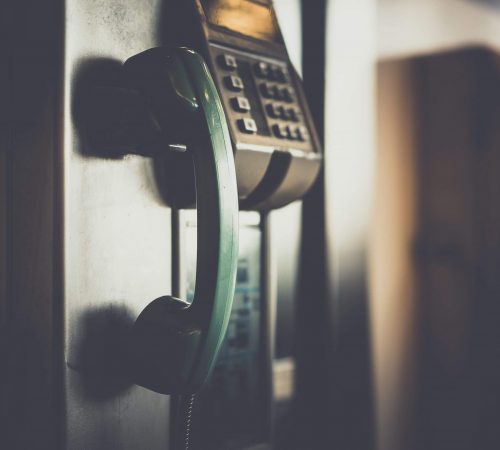Grief and Loss Hotline Number for Teens and Adolescents in Dallas, Texas
In the U.S. general population, 6.6% of children (4.5 million) will lose a parent, and 1.5% will lose a sibling before the age of 18. BasePoint Academy’s handful of Texas-based treatment centers possess the compassion, experience, and clinical excellence to address teens coping with the loss of a loved one and related mental health challenges.
In addition to bereavement support, our mental health professionals are adept at treating adolescent mental health issues, such as mood disorders, trauma, anxiety, ADHD, OCD, PTSD, bipolar disorder, and self-harm. On this page, you’ll learn more about our grief hotline, grief counseling services, and other valuable resources for processing loss. If your teen needs support, call our grief hotline 24/7 or complete our contact form to schedule a free grief assessment.
What is a Teen Mental Health Hotline?
A teen mental health hotline is a confidential resource where teenagers can speak with trained professionals about their emotional and mental health concerns. These emotional well-being hotlines provide support for issues like depression, anxiety, PTSD, and suicidal thoughts. They offer immediate emotional help and guidance, ensuring teens never feel alone during challenging times.
Whether your child is struggling with overwhelming feelings of anxiety, Complex Post Traumatic Stress Disorder (CPTSD), or the heavy burden of depression, reaching out to a mental health hotline can be a crucial first step in getting help. Trained professionals are there to listen, provide coping strategies, and connect you with further resources or mental health treatment options.
BasePoint Accepts Insurance for Teen Grief
Our complimentary assessment with a licensed clinician will provide you with a recommendation for the appropriate level of care for your teen struggling with grief. We can also check your insurance coverage levels.
Call us today to schedule a complimentary same-day assessment at (972) 357-1749 or complete our inquiry form.
Teen Grief Counseling Admissions form
What is a Teen Mental Health Helpline?
A teen mental health hotline offers confidential mental health support to teenagers. Teens can talk to trained professionals about their emotional and mental health concerns. These behavioral health helplines provide support for issues like grief and loss, anxiety, Post-Traumatic Stress Disorder (PTSD), and suicidal thoughts. This immediate emotional help reassures teens that they’re not alone, especially during challenging times.
If your child is dealing with grief, contacting a grief hotline in Texas can be a beneficial first step. Experienced professionals can listen, offer coping strategies, and connect you with additional resources and grief therapy options.
Contact BasePoint Academy Today
Contact us today to schedule a free confidential assessment for your teen with a licensed clinician.
You can also get in touch to talk with our mental health experts about treatment needs, care options and your insurance coverage levels.
Call: (972) 357-1749Check Your InsuranceWhy Are Texas Helplines Beneficial?
Texas talk therapy helplines are beneficial because they provide immediate, confidential support for individuals struggling with mental health issues such as grief, anxiety, depression, ADHD, and substance abuse. These helplines connect callers with trained professionals who offer guidance, coping strategies, and resources, ensuring that help is always available in moments of need.
In addition to offering emotional and psychological distress support, Texas helplines can assist with more complex challenges like crises involving suicidal thoughts. Crisis counseling services and suicide prevention hotlines are crucial for those seeking help but unsure where to turn. If your teen is grieving, our 24 hour grief support line can connect you with trained professionals who understand adolescent mental health.

Understanding Grief and Loss in My Teen and Adolescent Child
Understanding grief and loss in your child can be challenging. The grieving process looks different for everyone, and everyone has their own methods of coping with bereavement. Teenagers often struggle to express these feelings, which can make it harder to recognize the signs of grief, but you may notice your child exhibiting sadness, anger, confusion, or even guilt.
They might withdraw from social activities, show changes in behavior, or experience academic struggles. Recognizing these signs and offering support through open communication, therapy, or counseling can help your child navigate their grief healthily and constructively. It’s essential to provide a safe space for them to talk about their emotions and validate their feelings. For confidential support at any time, our grief hotline 24/7 is here to listen and guide.
How to Help Teens Coping with the Death of a Loved One
Helping teens cope with the death of a loved one involves guiding them through the mourning process and supporting healthy methods that promote emotional healing. Teens often face complex emotions when dealing with grief, such as sadness, anger, or confusion. Providing a safe space for them to express their feelings can be crucial to healing from loss.
In addition to open communication, it’s essential to recognize signs of prolonged grief or the onset of mental health issues like anxiety and depression. Conditions like PTSD or emotional dysregulation can arise, complicating the grieving process. Professional therapy or grief counseling may be necessary to ensure they receive the proper support and begin to heal emotionally. Contact BasePoint Academy’s loss mental health hotline in Texas today to learn how we can support your child during this challenging period.

When Might Counseling and Therapy be Needed to Cope with Grief and Loss?
Counseling and therapy may be needed to cope with grief and loss when a teen struggles with emotional bereavement or shows signs of prolonged grief. If their sadness persists, disrupts daily life, or leads to issues like depression, anxiety, or PTSD, professional help can provide the support they need. Grief support groups can also offer a shared space for healing.
Certain grief-related disorders, such as complicated grief or adjustment disorders, can emerge during the mourning process. In these cases, professional treatment helps teens navigate their emotions, process the loss, and regain emotional balance. Reach out to BasePoint Academy to learn more about the available grief therapy and counseling options—call (972) 357-1749 today.
What Support is Available for Grief and Loss in Texas?
In Texas, various support options are available for teens coping with loss and grief. Emotional support lines offer immediate assistance to those in need, providing a safe space to talk about feelings of sadness and mourning. Additionally, mental health crisis intervention services are available for teens facing intense grief-related emotions like depression or anxiety.
For ongoing support, grief counseling and therapy are common resources. Teens struggling with complicated grief, PTSD, or related disorders can benefit from specialized grief therapy programs. Many organizations offer grief support groups and individual counseling to help teens work through their emotions when healing from loss.
What is a Mental Health Grief & Loss Helpline Number for Teenagers?
Mental health grief and loss helpline numbers are designed to help teens process their feelings by offering emotional crisis intervention and guidance. A confidential grief mental health hotline in Texas provides teenagers with a safe space to discuss their thoughts and feelings. These emotional well-being hotlines also support teens dealing with related issues like anxiety and depression.
If your teen is struggling with sadness or mourning, a quick call can connect them to professionals who understand their needs. Trained counselors offer immediate emotional support, provide coping strategies, and guide teens toward longer-term mental health resources, ensuring they never have to face their grief alone.
Are There Specific Hotlines for Adolescents with Grief and Loss Near Dallas?
Yes, there are specific hotlines for adolescents experiencing grief and loss near Dallas, Texas. Texas State grief mental health crisis hotlines offer specialized support for teens struggling with the emotional weight of losing a loved one. Parents and guardians are also encouraged to call, as these resources can help them understand how best to support their child during difficult times.
In addition to grief-specific hotlines, these services often address related mental health issues like depression, anxiety, and PTSD, which can emerge after the loss of a loved one. Trained professionals offer emotional crisis intervention and can connect families with grief support groups or counseling options, such as those at BasePoint Academy in the Dallas area.
Are Teenage Grief and Loss Helplines Free and Confidential?
Yes, teenage grief and loss helplines in Texas are typically free and confidential. These services ensure teens can seek help without worrying about costs or privacy. A free grief and loss mental health hotline in Texas allows teens to talk to trained professionals about their emotional struggles in a safe and supportive environment.
These hotlines provide a critical resource for teens dealing with grief, loss, or related mental health concerns like anxiety and depression. The confidential mental health support ensures that teens feel comfortable sharing their feelings while also receiving immediate emotional help, coping strategies, and connections to further mental health support if needed.

How Can I Talk to Someone About My Child’s Grief and Loss for Free?
Call a grief mental health hotline in Texas, like BasePoint Academy at (972) 357-1749, to talk to someone about your child’s grief and loss. This free and confidential mental health support can guide you in managing related symptoms like severe anxiety and depression. Our professionals can assess your child’s needs and recommend the appropriate treatment and mental health resources.
This personalized support is available seven days a week, from 7 am to 7 pm Central Standard Time (CST). Don’t hesitate to seek professional guidance that can significantly impact your child’s journey toward loss recovery.

Available Hours for Grief & Loss Hotline Numbers Open in Dallas
Fortunately, many grief and loss mental health hotlines in Dallas, Texas, provide 24/7 mental health assistance. No matter if your child is experiencing a mental health crisis late at night, early in the morning, or at any time in between, confidential mental health support is just a phone call away.
Adolescent and Teen Grief Hotline at BasePoint Open 7 am to 7 pm CST
At BasePoint Academy, we recognize that mental health crises don’t adhere to a 9-to-5 schedule. That’s why our dedicated professionals are here for you seven days a week from 7 am to 7 pm Central Standard Time (CST). Call (972) 357-1749 to connect with professionals who understand the impact of grief and loss on young lives.
Teen Grief Phone Lines Open 24 Hours a Day, 7 Days a Week
In Texas, hotlines like Dallas Metrocare Services offer 24/7 mental health assistance for grief and loss, ensuring you have crucial support available around the clock. Whether it’s a national or Texas State grief mental health crisis hotline, these mental health emergency lines provide essential intervention whenever you need it.
While daytime calls might offer additional resources and options, don’t wait—reach out to a grief and loss mental health hotline any time for immediate support.
Contact BasePoint Academy Today
Contact us today to schedule a free confidential assessment for your teen with a licensed clinician.
You can also get in touch to talk with our mental health experts about treatment needs, care options and your insurance coverage levels.
Call: (972) 357-1749Check Your InsuranceWhat Questions Might I Be Asked If I Call a Confidential Grief and Loss Helpline for my Adolescent Child?
When you call a confidential grief and loss helpline for your adolescent child, you can expect to be asked a series of questions to better understand the situation and provide appropriate support. These questions help the counselor assess your child’s emotional state and identify the most effective ways to offer help.
Here are some common questions you might encounter:
- Can you describe what your child is experiencing? This helps the counselor gauge the intensity of your child’s grief and identify any immediate needs.
- When did the loss occur? Knowing the timeline helps in understanding how recent the grief is and what stage of the mourning process your child might be in.
- Has your child shown any changes in behavior or mood? This question seeks to uncover any signs of distress that may need addressing.
- What support systems does your child currently have? Understanding family dynamics or if there are existing support networks can guide the counselor in recommending additional resources.
- Is your child having any thoughts of self-harm or suicidal ideation? This critical question assesses immediate safety concerns and determines the need for psychiatric emergency response.
- What kind of coping mechanisms or strategies has your child tried? This helps to identify what has or hasn’t worked in managing their grief, guiding the counselor to suggest new approaches if needed.
- How is your child’s daily functioning, including schoolwork and social interactions? This provides insight into how the grief affects their daily life and whether additional support might be necessary.
- Have any significant changes in your child’s physical health or sleep patterns occurred? Changes in health or sleep can be indicators of deeper emotional distress that may need to be addressed.
- Are there any specific triggers or events that seem to worsen your child’s grief? Identifying triggers helps tailor support and interventions to help your child manage their emotional responses.
- What are your main concerns or goals for seeking help? Understanding your priorities allows the counselor to focus on the most pressing issues and align their support with your family’s needs.
Texas Hotline Numbers for Teen Grief and Loss Counseling and Support
Specialized Texas State grief mental health crisis hotlines offer support and guidance for teens coping with loss. The following resources provide the necessary bereavement support to address your child’s struggles. Whether your child needs immediate mental health crisis response or long-term strategies, the following recommended Lone Star State-based hotline numbers involve professional assistance to meet varying needs.

BasePoint Academy
- Phone: (972) 357-1749
- Website: https://basepointacademy.com/free-assessment/
Youth and Family Counseling
- Contact: 972-724-2005.
- Website: https://counselingforall.org/
North Texas Behavioral Health Authority (NTBHA)
- Contact: 24/7 crisis hotline at 866-260-8000
- Website: https://ntbha.org/
Dallas Metrocare Services
- Contact: 24/7 crisis helpline at 214-743-1200
- Website: https://www.metrocareservices.org/
Mental Health America of Greater Dallas
- Contact: 214-871-2420
- Website: https://mhadallas.org/
Effective Teen Grief Management With BasePoint Academy
We can help your teen and your family address and overcome mental health concerns with expert care and a safe environment. Call today to discover the treatment for long-term healing.
Grief and Loss Statistics Among Teens & Adolescents in Texas
- In Texas, 190,000 children who have lost a parent or are orphaned make up 3% of the state’s total child population. These children face an increased risk of academic difficulties, substance abuse, suicide attempts, completed suicide, and early death compared to their peers who have not experienced such loss.
- According to the Texas Education Agency (TEA), schools play a crucial role in supporting children and adolescents who have faced adverse childhood experiences, grief, and trauma.
- According to the Hogg Health Foundation at the University of Texas at Austin, approximately 1 in 16 children in Texas will encounter the death of a parent or sibling before reaching adulthood.
- The Texas Department of State Health Services reported that in 2022, about 295 Texans under the age of 18 lost their lives due to gunshot injuries, reflecting the immeasurable impact of grief and loss on the Lone Star State’s youth.
- The Texas Revised Inventory of Grief (TRIG) is a tool used to assess the emotional responses of grieving individuals. It helps evaluate the intensity and nature of grief symptoms, providing a structured approach to understanding and addressing the impact of loss. Mental health professionals often use this inventory to guide treatment and support for those dealing with grief.
Teen Mental Health Hotline Guide






